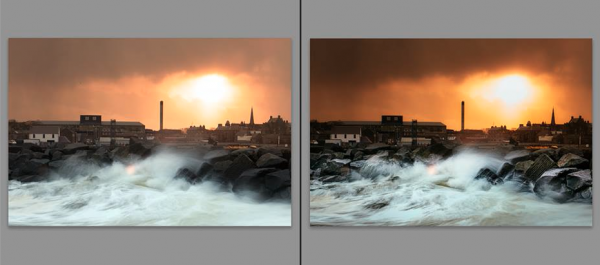Why do photographers edit images?
Posted: January 29th, 2014 | Tags: Photography • Tutorials | Posted in: PhotographyJust the other day on Facebook I read something that annoyed me a little bit. It was on a Facebook Group called “Scotland From the Roadside“, and read:
Love this page but the unedited photographs that haven’t been enhanced need way more appreciation IMO
It made me think for a bit why those unedited images were being left at the bottom of the update feed, in favour of the edited images taken by both professional and amateur photographers, and why photographers bother to edit images at all! – the answer is quite simple.

Prior to purchasing an SLR most budding photographers feel frustrated by the limitations of compacts and mobile phone cameras. Mostly because they are not able to capture via the camera what they see with their eyes.
The budding photographer buys an SLR with a wider-angle lens and things get better, the field of view is closer to that of their eyes! However, the image doesn’t represent accurately the primary reason why the photographer was motivated to capture the scene in the first instance. It often lacks the emotion, drama, contrast and the overall moment of what they saw… and this is where editing comes in.
If you think about how crap a camera really is in comparison to our eyes and our brain, it’s little wonder we need to do something about the images it produces. Unlike our eyes, the camera creates 2D images. It is fooled by light and dark areas within the scene and often needs to compensate logically, at the cost of reality. It doesn’t see what we see, it merely captures a scene we point it at in the best way it can.
Obviously a photographer who is competent can optimise exposure by knowing how their camera performs under different lighting scenarios, and this will remove the need for fixing problems in editing, but it’s always limited by what the camera is able to capture.
However, our eyes:
- Have vastly more contrast and dynamic range than any camera or monitor.
- Can see into the darkest shadows, whilst not letting us be blinded by brighter lights in our field of view.
- Are connected to our brain which fills in missing visual information and is better than any camera processor.
- Do not suffer from chromatic aberration and wide-angle distortion.
- Do not collect dust spots – and if they do they make us hurt until we remove them!
- Turn an image the right way up even if we are squint.
If you think about it, editing is just removing all the problems created by capturing a scene with a camera, and a completely un-unedited image is potentially more unnatural compared to what we really see… well, most of the time anyway!